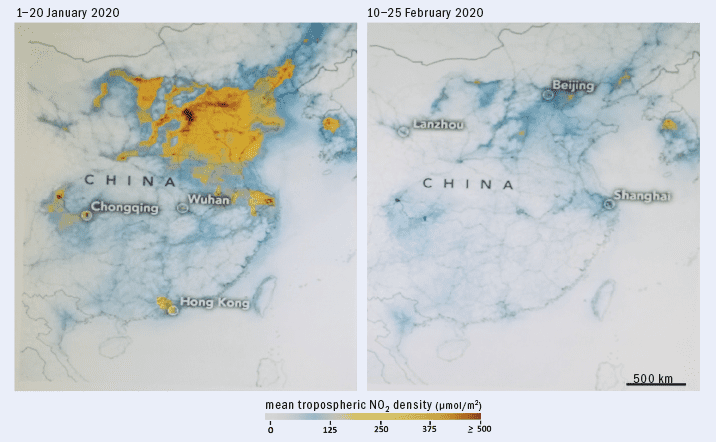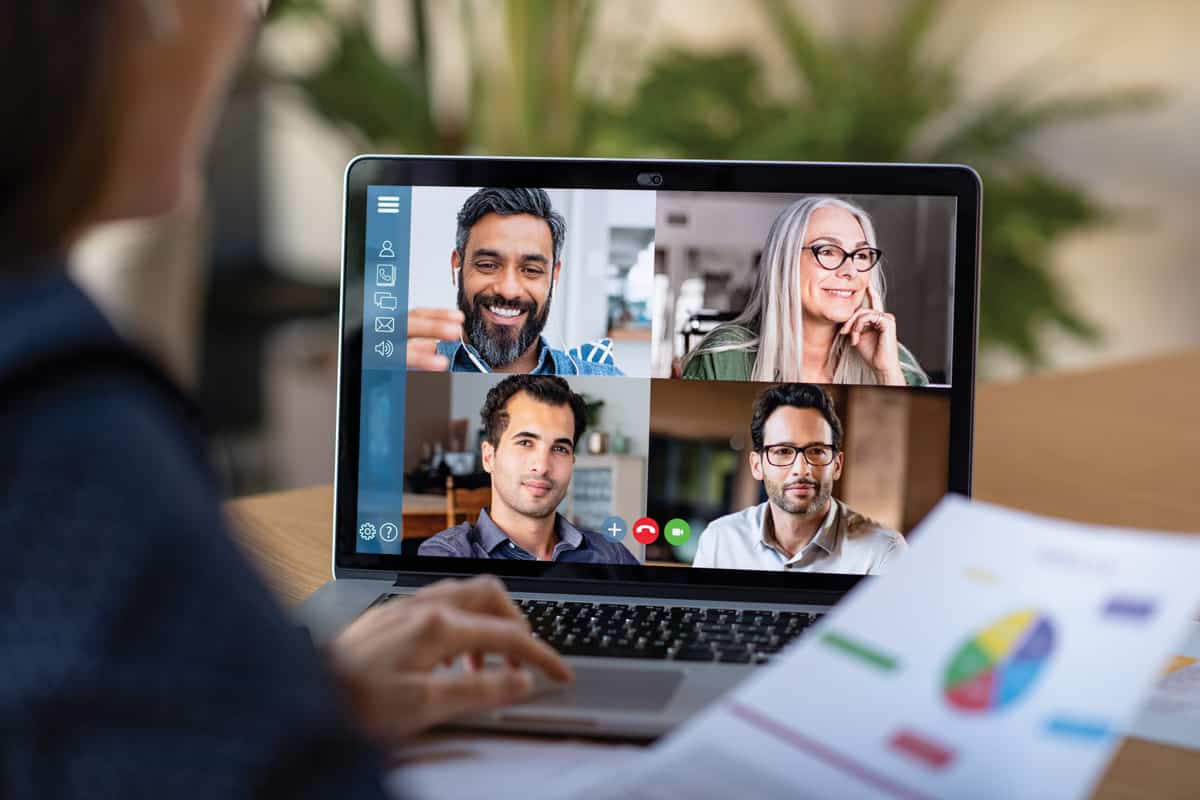We all knew that we should have travelled less and video conferenced more. But with COVID-19, we have no other choice says James McKenzie
 my recent column about how to reduce carbon emissions from air travel. Don’t be so naïve, I was told, people will never stop flying for business – they don’t want to go on a “flight diet”. What a difference a few months makes. The entire global aviation industry has almost ground to a halt due to a virus (SARS-CoV-2) that emerged in China and isn’t especially deadly (in terms of the overall percentage death rate).
my recent column about how to reduce carbon emissions from air travel. Don’t be so naïve, I was told, people will never stop flying for business – they don’t want to go on a “flight diet”. What a difference a few months makes. The entire global aviation industry has almost ground to a halt due to a virus (SARS-CoV-2) that emerged in China and isn’t especially deadly (in terms of the overall percentage death rate).
Now I don’t wish to make light of the tragic deaths of loved ones or the job losses and economic damage incurred by global efforts to contain this exponentially spreading virus. COVID-19 is indeed a global tragedy on many levels. But could there be a lesson from it in terms of how we deal with climate change? Could the virus be the event that shifts our habits on driving and flying forever?
Could the virus be the event that shifts our habits on driving and flying forever?
The last major killer pandemic – Spanish flu – led to the death of about 50 million people, or just under 3% of the population. However, it didn’t greatly affect the world economy, which was already on its knees after the First World War. The same was true of the 2009 swine flu pandemic. About 284,000 people died (compared to 250–500,000 deaths from seasonal flu annually) but apart from a few travel advisories it was mostly “business as usual”.
So why is COVID-19 so different and such a threat? The trouble is, it’s a totally new virus and we have no immunity to it. What’s worse is that you can be contagious before you show any symptoms. Critically ill people, meanwhile, need lots of doctors, nurses and equipment to be treated. No health service could cope if the virus were allowed to “let rip”, which is why most governments have decided to stop everyone from moving about and interacting.
But the economic impact of that decision has been huge. Many businesses are starved of sales and cannot last long without cash coming in. In many countries, companies are being supported by the state, but no government can hold back the tide for ever. Hardly surprising then that, by 29 April, the US S&P stock-market index of 500 top firms was 13.2% below its February peak. US unemployment was last month nearing 15%, while oil prices fell to a 20-year low and global production began to be cut as demand is expected to slump further.
Until the world finds a vaccine or we all build up enough “herd immunity”, things won’t return to how they were for years, if ever.
No-one knows how long this situation will last so we can’t yet say what its ultimate impact will be. But until the world finds a vaccine (and we’re all inoculated) or we all build up enough “herd immunity” not to spread this virus to the vulnerable, things won’t return to how they were for years, if ever. So we’d better adapt and embrace the amazing power of communication and connectivity that we have at our disposal.
E-mail, video conferences, virtual meetings, Internet speeds – wow, with this tech and a bit of planning you can be really productive. Plus, they remove all the “dead time” that you’d waste travelling. We all knew that these tools existed, but was it habit or the expectations of others that stopped us from using them more? And now that lots of other people aren’t stuck in traffic jams or on trains either, they’re more available too.
Since the lockdown began, I’ve discovered that this communication technology works really well – the UK’s investment in broadband and mobile data has really paid off. My kids are managing school and lectures online too, which would have been impossible 10 years ago. And even if I paid the annual subscription costs for the “premium” versions, it would still cost less than one train or car trip into London.
Sure, I miss going out with colleagues and new acquaintances, but social mixing will come back in some form.
Sure, I miss going out with colleagues and new acquaintances, but social mixing will come back in some form. I can, however, feel a new set of habits developing especially as the lack of travel means that I have more time to do the things I want. And what a joy not to have to wear all those boring old work shoes, shirts and coats.
According to the UK Office for National Statistics, only 5% of the UK labour force worked mainly from home in 2019. I predict that this figure will rise as employers and employees drool over the prospect of reduced office costs, improved staff retention, a better work–life balance for staff and a wider talent pool to recruit from. Not all work can be done online but a surprising amount can be.
What’s more, the lockdown has made the air cleaner. Pollution levels in New York have almost halved since this time last year. Emissions in China fell by 25% at the start of the year, while coal use dropped by 40% at its six biggest power plants. The slow down is sure to benefit transport emissions, which made up 24% of global carbon emissions in 2016. With fewer vehicles on the road, I can now even hear the birds singing in my garden.

Learning from Black Swan events
Yes, there will be winners and losers. In doing more online, businesses will save money on offices and travel costs. The big losers will be aircraft manufacturers, airlines, hotels, conference venues, commercial office-space providers and high-street shops. Pickpockets will also struggle, though I can live with that.
Will COVID-19 merely accelerate existing trends that would – and should – have happened anyway?
But for the survivors, will COVID-19 merely accelerate existing trends that would – and should – have happened anyway? Governments that are propping up their national economies will now find that they can now consider much stronger action on climate change. After all, it’s easier to push change if you’re paying for it. And if they’re smart enough, most of those governments will not just consider those changes, they’ll implement them too.
The only question is whether, once the economy has recovered, will we return to our bad old habits.
